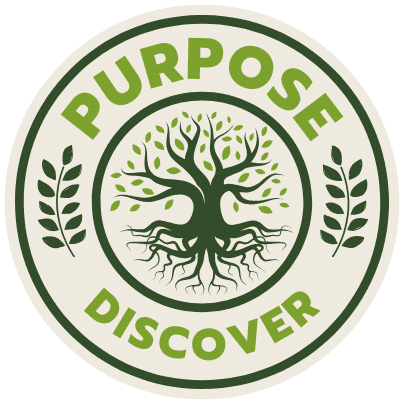In a world where we’re all searching for something—meaning, identity, peace, or just a good bagel—finding a sense of purpose can feel like hunting for a needle in a cosmic haystack. If you’re the type who’s asked, “What am I really here for?” then you’re not alone. Across time, cultures, and belief systems, people have wrestled with the question of purpose, offering answers that range from the simple to the mind-bendingly profound. And trust me, diving into these perspectives is like visiting a mental theme park—there’s something here for everyone, whether you’re into mysticism, morality, or just need a break from existential angst.
Now, let’s explore what some of the major religious and spiritual traditions say about purpose, why it matters, and how it might just shift how we look at our own lives.
The Big Questions: Why Am I Here?
In practically every spiritual tradition, purpose isn’t just about a job title or a relationship status; it’s about the deeper layers that make us tick. What gives our lives value? How can we make a difference? Does it involve helping others or just being “the best me”? Most importantly, can we do it without getting sidetracked by all the tempting distractions (we’re looking at you, social media)?
The funny thing is, as complicated as our modern lives have become, the idea of purpose has been central since ancient times. Religion and spirituality aim to answer that question in different ways. Here’s a tour of what some of the great minds of these traditions might have said if they were blogging today.
Christianity: Living in God’s Love (And Maybe a Little Coffee?)
Christianity has a rich tradition of talking about purpose, and it often boils down to a core belief: humans were created by God and are meant to live in relationship with Him. According to the Bible, our lives should reflect God’s love, mercy, and compassion toward others. For many Christians, purpose is about love—loving God, loving people, and even learning to love ourselves in the process.
But it’s not all as serious as it sounds. Many modern Christians believe you can glorify God through whatever you do, as long as you’re doing it for the right reasons. Are you a baker? You’re spreading love one loaf at a time. A coffee enthusiast? Maybe that caffeine boost is just God’s way of helping you start the day.
At the end of the day, Christians often look at purpose as something unique to each individual. But at its core, it’s about connecting with God, serving others, and doing it all with a sense of joy. Feeling called to explore more on this? You might find insights at What Is Your Purpose?.
Buddhism: The Art of Just Being (And Maybe Meditating)
In Buddhism, purpose is less about a “mission” and more about a mindset. Buddha taught that suffering is part of life, but we can lessen it by understanding ourselves and our place in the world. So, what’s the purpose? For Buddhists, it’s often about personal enlightenment—becoming more mindful, compassionate, and aware.
The Buddhist journey doesn’t aim for a singular, concrete purpose, but rather for a kind of inner peace. Purpose is about practicing compassion toward others and finding contentment within. Unlike some religions, Buddhism doesn’t see purpose as something you achieve but as a way of being. And as it turns out, that’s harder than it sounds. If you’ve ever tried meditating for ten minutes, you know it’s no walk in the park!
Hinduism: Dharma, Karma, and the Cosmic Dance
Hinduism might have the most extensive philosophy on purpose. In this tradition, your purpose is tied to your Dharma—your duty and moral responsibilities. Every individual has a unique role and path, and living in harmony with that is considered the essence of purpose.
Then there’s Karma, the concept that what you put out into the world comes back to you. Living purposefully in Hinduism means aligning with your Dharma, doing good deeds, and ultimately moving closer to Moksha (spiritual liberation). Imagine life as a cosmic dance where every step has meaning, every action leads to another, and the ultimate goal is to break free from the cycle of reincarnation. Purpose in Hinduism is a journey—a wild, never-boring ride.
Judaism: A Partnership with the Divine (Plus, a Good Shabbat Dinner)
In Judaism, purpose is often viewed as a partnership with God to make the world a better place. The concept of Tikkun Olam—”repairing the world”—is central, meaning that individuals are responsible for making their community, environment, and themselves better. Jewish purpose tends to lean heavily into action—doing good, following commandments, and yes, sometimes wrestling with God (metaphorically or otherwise).
Judaism teaches that every person has a unique set of talents and gifts, which they should use to fulfill their purpose. It’s not just about “getting to heaven” but making life meaningful here on Earth. And if you can do that while enjoying some challah, well, so much the better.
Islam: A Life of Worship, Service, and Submission
In Islam, the concept of purpose is closely tied to serving God (Allah) and following His guidance. Purpose for Muslims is fundamentally about worship and submission—praying, giving to charity, and striving for personal excellence are all seen as acts of devotion. Every aspect of life, from work to family, can be an act of worship if done with the right intention.
Islam teaches that each person is here for a reason, and it’s through submission to God’s will that one finds their true purpose. This doesn’t mean that Muslims are passive by any means; on the contrary, Islam promotes being active in one’s community, helping others, and leading by example.
Indigenous Beliefs: Harmony with Nature and Ancestors
Indigenous belief systems around the world often teach that purpose is found in living harmoniously with nature, ancestors, and the community. Many Native American and First Nations tribes view purpose as something that connects you to the land, to the people around you, and to the ancestors who came before you. There’s often a strong sense of responsibility toward future generations as well, making purpose not just about the self, but about the ongoing story of the tribe.
Purpose in these belief systems isn’t about wealth or fame but about balance and respect. It’s about honoring the earth, respecting all living beings, and seeing oneself as part of a larger, interconnected web of life.
Finding Your Purpose in a Modern, Mixed-Up World
With so many perspectives on purpose, it’s no wonder we all feel a little lost sometimes! The beauty of religious and spiritual perspectives is that they each offer something unique—be it compassion, duty, enlightenment, or harmony. There’s no single answer, but maybe that’s the point. Purpose is something we build, shape, and discover over a lifetime, often influenced by the people and experiences we encounter.
Maybe, just maybe, purpose isn’t as elusive as it seems. Whether you find it in meditation, a sacred text, a conversation with a friend, or while baking a loaf of bread, purpose has a way of sneaking up on you. So go easy on yourself. Reflect, ask questions, and try things out. You’re probably closer to finding your purpose than you realize.
Author
-
Malin Drake serves as methodology editor at WhatIsYourPurpose.org. He builds pieces that test ideas, not just describe them. Clear claims. Named sources. Revision history on major updates. When Scripture appears, it’s handled in context with established commentary. Core themes: purpose under pressure, decision hygiene, and habit systems you can audit. Deliverables include one-page playbooks, failure logs, and debrief questions so readers can try the work, measure it, and keep what holds up.
View all posts


